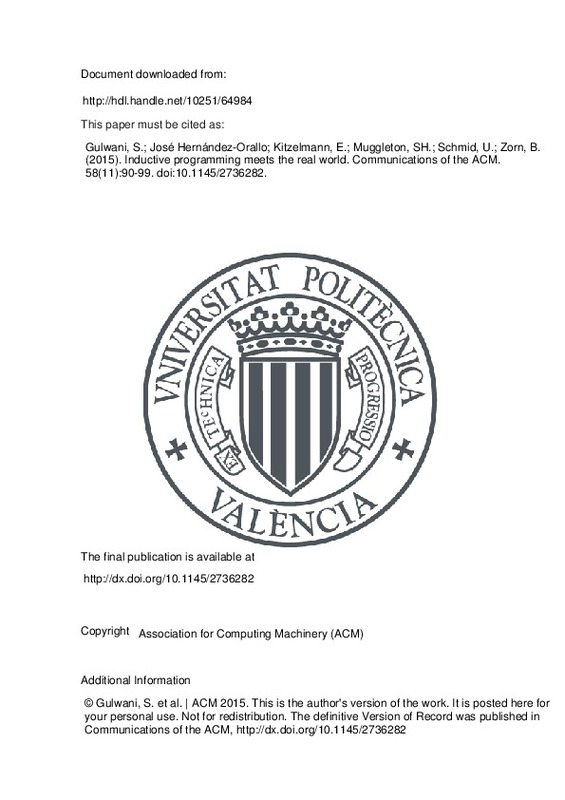Bengio, Y., Courville, A. and Vincent, P. Representation learning: A review and new perspectives.Pattern Analy. Machine Intell. 35, 8 (2013), 1798--1828.
Bielawski, B. Using the convertfrom-string cmdlet to parse structured text.PowerShell Magazine, (Sept. 9, 2004); http://www.powershellmagazine.com/2014/09/09/using-the-convertfrom-string-cmdlet-to-parse-structured-text/
Carlson, A., Betteridge, J., Kisiel, B., Settles, B., Hruschka-Jr, E.R. and T.M. Mitchell, T.M. Toward an architecture for never-ending language learning. InAAAI, 2010.
[+]
Bengio, Y., Courville, A. and Vincent, P. Representation learning: A review and new perspectives.Pattern Analy. Machine Intell. 35, 8 (2013), 1798--1828.
Bielawski, B. Using the convertfrom-string cmdlet to parse structured text.PowerShell Magazine, (Sept. 9, 2004); http://www.powershellmagazine.com/2014/09/09/using-the-convertfrom-string-cmdlet-to-parse-structured-text/
Carlson, A., Betteridge, J., Kisiel, B., Settles, B., Hruschka-Jr, E.R. and T.M. Mitchell, T.M. Toward an architecture for never-ending language learning. InAAAI, 2010.
Chandola, V., Banerjee, A. and V. Kumar, V. Anomaly detection: A survey.ACM Computing Surveys 41, 3 (2009), 15.
Cypher, A. (Ed).Watch What I Do: Programming by Demonstration.MIT Press, Cambridge, MA, 1993.
Ferri-Ramírez, C., Hernández-Orallo, J. and Ramírez-Quintana, M.J. Incremental learning of functional logic programs. InProceedings of FLOPS, 2001, 233--247.
Flener, P. and Schmid, U. An introduction to inductive programming.AI Review 29, 1 (2009), 45--62.
Gulwani, S. Dimensions in program synthesis. InProceedings of PPDP, 2010.
Gulwani, S. Automating string processing in spreadsheets using input-output examples. InProceedings of POPL, 2011; http://research.microsoft.com/users/sumitg/flashfill.html.
Gulwani, S. Example-based learning in computer-aided STEM education.Commun. ACM 57, 8 (Aug 2014), 70--80.
Gulwani, S., Harris, W. and Singh, R. Spreadsheet data manipulation using examples.Commun. ACM 55, 8 (Aug. 2012), 97--105.
Henderson, R.J. and Muggleton, S.H. Automatic invention of functional abstractions.Latest Advances in Inductive Logic Programming, 2012.
Hernández-Orallo, J. Deep knowledge: Inductive programming as an answer, Dagstuhl TR 13502, 2013.
Hofmann, M. and Kitzelmann, E. I/O guided detection of list catamorphisms---towards problem specific use of program templates in IP. InACM SIGPLAN PEPM, 2010.
Jha, J., Gulwani, S., Seshia, S. and Tiwari, A. Oracle-guided component-based program synthesis. InProceedings of the ICSE, 2010.
Katayama, S. Efficient exhaustive generation of functional programs using Monte-Carlo search with iterative deepening. InProceedings of PRICAI, 2008.
Kitzelmann, E. Analytical inductive functional programming.LOPSTR 2008, LNCS 5438.Springer, 2009, 87--102.
Kitzelmann, E. Inductive programming: A survey of program synthesis techniques. InAAIP, Springer, 2010, 50--73.
Kitzelmann, E. and Schmid, U. Inductive synthesis of functional programs: An explanation based generalization approach.J. Machine Learning Research 7, (Feb. 2006), 429--454.
Kotovsky, K., Hayes, J.R. and Simon, H.A. Why are some problems hard? Evidence from Tower of Hanoi.Cognitive Psychology 17, 2 (1985), 248--294.
Lau, T.A. Why programming-by-demonstration systems fail: Lessons learned for usable AI.AI Mag. 30, 4, (2009), 65--67.
Lau, T.A., Wolfman, S.A., Domingos, P. and Weld, D.S. Programming by demonstration using version space algebra.Machine Learning 53, 1-2 (2003), 111--156.
Le, V. and Gulwani, S. FlashExtract: A framework for data extraction by examples. InProceedings of PLDI, 2014.
Lieberman, H. (Ed).Your Wish is My Command: Programming by Example.Morgan Kaufmann, 2001.
Lin, D., Dechter, E., Ellis, K., Tenenbaum, J.B. and Muggleton, S.H. Bias reformulation for one-shot function induction. InProceedings of ECAI, 2014.
Marcus, G.F. The Algebraic Mind.Integrating Connectionism and Cognitive Science.Bradford, Cambridge, MA, 2001.
Martìnez-Plumed, C. Ferri, Hernández-Orallo, J. and M.J. Ramírez-Quintana. On the definition of a general learning system with user-defined operators.arXiv preprint arXiv:1311.4235, 2013.
Menon, A., Tamuz, O., Gulwani, S., Lampson, B. and Kalai, A. A machine learning framework for programming by example. InProceedings of the ICML, 2013.
Miller, R.C. and Myers, B.A. Multiple selections in smart text editing. InProceedings of IUI, 2002, 103--110.
Muggleton, S.H. Inductive Logic Programming.New Generation Computing 8, 4 (1991), 295--318.
Muggleton, S.H. and Lin, D. Meta-interpretive learning of higher-order dyadic datalog: Predicate invention revisited.IJCAI 2013, 1551--1557.
Muggleton, S.H., Lin, D., Pahlavi, N. and Tamaddoni-Nezhad, A. Meta-interpretive learning: application to grammatical inference.Machine Learning 94(2014), 25--49.
Muggleton, S.H., De Raedt, L., Poole, D., Bratko, I., Flach, P. and Inoue, P. ILP turns 20: Biography and future challenges.Machine Learning 86, 1 (2011), 3--23.
Olsson, R. Inductive functional programming using incremental program transformation.Artificial Intelligence 74, 1 (1995), 55--83.
Perelman, D., Gulwani, S., Grossman, D. and Provost, P. Test-driven synthesis.PLDI, 2014.
Raza, M., Gulwani, S. and Milic-Frayling, N. Programming by example using least general generalizations.AAAI, 2014.
Schmid, U. and Kitzelmann, E. Inductive rule learning on the knowledge level.Cognitive Systems Research 12, 3 (2011), 237--248.
Schmid, U. and Wysotzki, F. Induction of recursive program schemes.ECML 1398 LNAI(1998), 214--225.
Shapiro, E.Y. An algorithm that infers theories from facts.IJCAI(1981), 446--451.
Solar-Lezama, A.Program Synthesis by Sketching.Ph.D thesis, UC Berkeley, 2008.
Summers, P.D. A methodology for LISP program construction from examples.JACM 24, 1 (1977), 162--175.
Tenenbaum, J.B., Griffiths, T.L. and Kemp, C. Theory-based Bayesian models of inductive learning and reasoning.Trends in Cognitive Sciences 10, 7 (2006), 309--318.
Young, S. Cognitive user interfaces.IEEE Signal Processing 27, 3 (2010), 128--140.
[-]







![[Cerrado]](/themes/UPV/images/candado.png)


